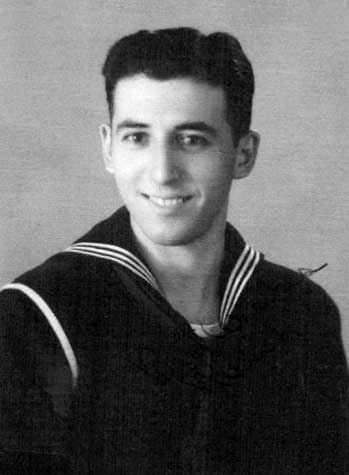|
Lt. Ralph C. Poness enlisted in the U.S. Navy on February 23, 1938. In August 1938 he was transferred overseas to the 6th Naval District, Cavite Navy Yard, Philippine Islands. He remained on duty there when war broke out with the Japanese Empire. He was on Corregidor when General MacArthur was ordered by President Franklin D. Roosevelt to evacuate the “Rock” and proceed to Australia. Lt. Poness was at the small dock on Corregidor with the Pt-41 left with the General’s family for that long hazardous journey through enemy waters. Lt. Poness and his comrades fought off the enemy against overwhelming odds until the inevitable happened, the surrender of Corregidor in May, 1941. Around three hours after the capitulation, a Japanese infantry took over Corregidor. The defenders of Corregidor were lined up just four feet from the edge of a cliff by a Japanese Marine landing party. The cliff was about 75 feet above the water’s edge.
In his own words, Lt. Poness recounts what happened: the Japanese started to tear off our clothes with their bayonets. All indications were that we were about to be thrown off the cliff. After that ordeal we were told to dress. Then the Japanese pushed us into line with their rifle butts. We were held at Janes Ravine on Corregidor until May 9, 1941. Then we were moved to 92 Garage Area where 10,000 other prisoners were held for 19 days and nights without shelter. Crowded into a wire fenced area designed for a maximum of 2,000 prisoners, the entire group had access to only one spigot of water and fed one meal a day. No medicine or facility for proper sanitation was provided.
In intense heat, we fended of swarms of flies. Many cases of dysentery developed and took a heavy toll on the rank and file---men lost control of their bodily functions and relieved themselves right where they lay or sat. Hundreds of men died because of improper living quarters, bad food, foul water, and not even the most basic medical care. Severe beatings came every other minute and many men died as result. Those who died were stretched out in our midst and left there for 2 to 4 days before they were buried in graves so shallow that parts of them remained visible.
Lt. Poness was also a prisoner at Bataan, Osaka, and many other camps where he was forced to carry 100 pound sacks on his back from warehouses to ships. The many other incidents of cruelty he endured are too numerous to mention on this certificate of valor. For his bravery and endurance he was cited for promotion to Lieutenant, but he declined, saying he endured all this, not for a promotion, but for love of his country. Undeterred by the constant danger to himself, the severe punishment frequently received for his gallant actions, his unselfish and courageous devotion towards his shipmates boosted morale and inspiration during the most trying of times.
|

Ralph C. Poness
|